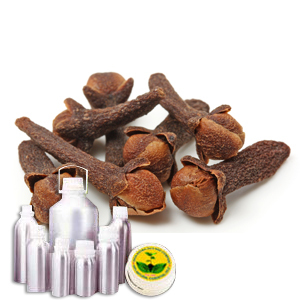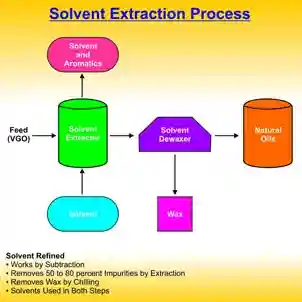 | Botonical Name | : | Syzygium aromaticum |
 | CAS # | : | 97 - 53 - 0 |
 | Country of Origin | : | Indonesia |
 | Color & Odor | : | Colourless to yelloish liquid with Spicy Odor |
 | Solubility | : | Soluble in alcohol, slightly soluble in water |
 | Specific Gravity | : | 1.048 - 1.056 @ 25.00 °C |
 | Optical Rotation | : | 1.5270 - 1.5350 |
 | Refractive Index | : | 1.527 to 1.538 @ 20.00 °C |
 | Flash Point | : | >100°C |
 | Plant Part Used | : | Buds |
 | Extraction Method | : | Solvent Extraction |
DESCRIPTION:
Clove is widely cultivated in Indonesia, Sri-Lanka, Madagascar, Tanzania, and Brazil. It is used in limited amounts in food products as a fragrant, flavoring agent, and antiseptic. CONSTITUENTS:
Eugenol comprises 72-90% of the essential oil extracted from cloves, and is the compound most responsible for the cloves' aroma. Other important essential oil constituents of clove oil include acetyl eugenol, beta-caryophyllene and vanillin; crategolic acid, tannins, gallotannic acid, methyl salicylate (painkiller); the flavonoids eugenin, kaempferol, rhamnetin, and eugenitin, triterpenoids like oleanolic acid, stigmasterol and campesterol; and several sesquiterpenes. Aromatic Summary / Note / Strength of Aroma:
Sweet, rich. Spicy and fruity odor.BLENDS WITH:
Basil, benzoin, cinnamon, lavender, ginger, sandalwood and clary sage. COMMON NAMES:
Syzygium aromaticum, Eugenia aromatica, E. carophyllus. USES:
Clove oil can be used for acne, bruises, burns and cuts, keeping infection at bay and as a pain reliever. It helps in toothache, mouth sores, rheumatism and arthritis. It is also of use for skin problems - especially for skin sores and leg ulcers and as an insect repellent.


































